How to Identify Dry Mouth Symptoms Early
- 1. Introduction to Dry Mouth
- 2. Common Symptoms of Dry Mouth
- 3. What Causes Dry Mouth?
- 4. Complications of Untreated Dry Mouth
- 5. How to Treat Dry Mouth Effectively
- 6. Preventing Dry Mouth
- 7. Real-Life Case: A Story of Dry Mouth Management
- 8. Conclusion: Why Early Detection of Dry Mouth Matters
1. Introduction to Dry Mouth
Dry mouth, also known as xerostomia, is a condition where your mouth feels dry due to a lack of saliva. Saliva is essential for maintaining oral health as it helps to cleanse the mouth, fight bad breath, and facilitate digestion. A reduction in saliva production can lead to discomfort and more serious oral health issues. While many people experience dry mouth occasionally, it can also be a sign of a more persistent underlying issue.
Recognizing dry mouth symptoms early is key to preventing further oral health complications. In this article, we’ll dive deep into the symptoms, causes, and treatments of dry mouth, as well as how to manage and prevent it from impacting your quality of life.
2. Common Symptoms of Dry Mouth
Dry mouth can manifest through various symptoms. The most common include:
- Constant dry feeling in the mouth: One of the first signs of dry mouth is a persistent sensation of dryness in the mouth that doesn’t go away even after drinking water.
- Difficulty swallowing or speaking: A lack of saliva can make it hard to swallow food or speak clearly, as saliva helps in the lubrication of the mouth.
- Dry or sticky feeling on the tongue: Your tongue may feel unusually dry, thick, or coated due to insufficient saliva production.
- Bad breath: The reduction in saliva can cause the mouth to become a breeding ground for bacteria, leading to bad breath.
- Cracked lips or sores in the mouth: Without enough moisture, your lips may crack, and sores can form inside the mouth due to friction and irritation.
If you notice any of these symptoms, it’s important to address them early to prevent further complications. Early recognition of dry mouth symptoms can help ensure effective treatment and improve your overall oral health.
3. What Causes Dry Mouth?
Dry mouth can be caused by several factors. Some of the most common causes include:
- Medication side effects: Many medications, such as antihistamines, painkillers, and antidepressants, can cause dry mouth as a side effect by reducing saliva production.
- Dehydration: Lack of proper hydration can lead to dry mouth, especially during illness, after exercise, or in hot weather.
- Medical conditions: Certain conditions such as diabetes, autoimmune diseases, and Sjögren's syndrome can result in reduced saliva flow.
- Radiation therapy: Treatment for cancer, particularly radiation therapy aimed at the head or neck, can damage the salivary glands and reduce saliva production.
- Smoking or alcohol use: Both smoking and excessive alcohol consumption can contribute to dry mouth by affecting the salivary glands.
Understanding the underlying cause of dry mouth is crucial to managing and treating it effectively. If you suspect your dry mouth is linked to a medical condition or medication, consult your healthcare provider for guidance.
4. Complications of Untreated Dry Mouth
If left untreated, dry mouth can lead to a range of complications that affect both your oral health and overall well-being. These include:
- Tooth decay and cavities: Saliva plays a key role in protecting teeth by neutralizing acids and washing away food particles. Without enough saliva, your teeth become more vulnerable to decay and cavities.
- Gum disease: Dry mouth can increase your risk of developing gum disease (gingivitis and periodontitis) because of the reduced ability to clear away bacteria.
- Difficulty chewing and swallowing: As saliva production decreases, chewing and swallowing become more challenging, which can affect your ability to eat and digest food properly.
- Oral infections: Dry mouth can increase the risk of fungal infections such as thrush and other oral infections due to the lack of moisture in the mouth.
Addressing dry mouth early is essential to prevent these complications and maintain your oral and overall health.
5. How to Treat Dry Mouth Effectively
There are several ways to treat dry mouth, depending on the underlying cause. Some of the most effective treatments include:
- Hydration: Drinking water regularly can help alleviate dry mouth. Sipping water throughout the day and using a humidifier at night can keep the mouth moist.
- Saliva substitutes: Over-the-counter saliva substitutes can help keep the mouth moist when natural saliva production is insufficient.
- Medications: If a medical condition or medication is causing dry mouth, your doctor may adjust your treatment plan or prescribe medications that stimulate saliva production.
- Good oral hygiene: Regular brushing, flossing, and using mouthwash can help maintain oral health and reduce the risk of cavities and gum disease.
- Avoiding irritants: Reducing or eliminating smoking, alcohol consumption, and caffeine can help prevent dry mouth from worsening.
By addressing the root cause of dry mouth and following these treatment strategies, you can effectively manage the condition and improve your comfort and oral health.
6. Preventing Dry Mouth
Prevention is always better than treatment. To reduce the risk of developing dry mouth, consider the following tips:
- Stay hydrated: Drink plenty of water throughout the day to keep your mouth moist.
- Chew sugar-free gum: Chewing gum can stimulate saliva production, helping to keep your mouth moist.
- Practice good oral hygiene: Brushing and flossing regularly helps to prevent the buildup of plaque, which can exacerbate dry mouth.
- Limit irritants: Reduce your consumption of alcohol, caffeine, and tobacco to minimize their impact on your saliva production.
By following these preventive measures, you can significantly reduce your chances of experiencing dry mouth and maintain a healthy, comfortable mouth.
7. Real-Life Case: A Story of Dry Mouth Management
Take the example of Tom, a 45-year-old man who started noticing persistent dry mouth symptoms after starting a new medication. He initially dismissed it as a temporary side effect, but his symptoms worsened over time. He found it difficult to swallow and speak, and his mouth constantly felt dry. After seeking advice from his dentist, Tom discovered that the medication he was taking was reducing his saliva production.
With the help of his healthcare provider, Tom adjusted his medication and began using a saliva substitute. Additionally, he made it a habit to drink water throughout the day and used a humidifier at night. Within a few weeks, his symptoms significantly improved. This case highlights the importance of identifying dry mouth symptoms early and seeking treatment promptly.
8. Conclusion: Why Early Detection of Dry Mouth Matters
Identifying dry mouth symptoms early is essential to preventing complications and improving your oral health. By recognizing the signs and addressing the underlying causes of dry mouth, you can manage the condition effectively and prevent further oral health issues. If you are experiencing persistent dry mouth, it is important to seek professional advice for the right treatment and care.
For more information about dry mouth and tips on maintaining optimal oral health, visit Dentistry Toothtruth for expert advice and guidance.

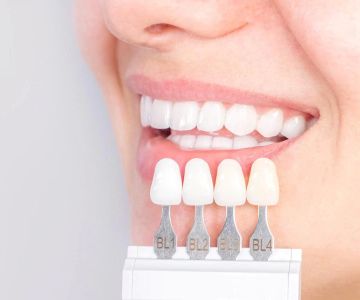

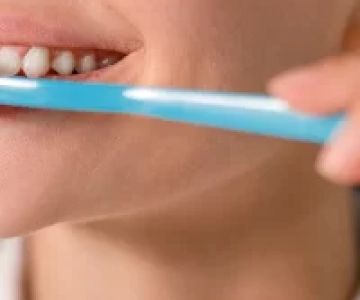
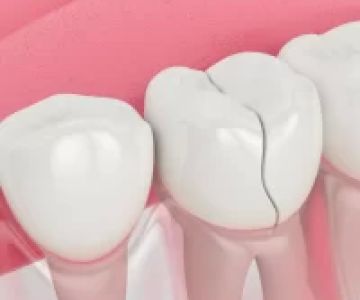
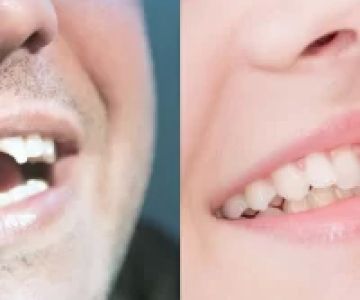
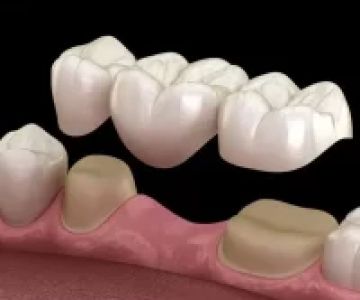
 Risas Dental and Braces - Boulder Crossings4.0 (312 review)
Risas Dental and Braces - Boulder Crossings4.0 (312 review) South Mississippi Smiles - Gulfport4.0 (454 review)
South Mississippi Smiles - Gulfport4.0 (454 review) Greencastle Dental4.0 (653 review)
Greencastle Dental4.0 (653 review) Dr. Jeffrey C. Klein DDS5.0 (11 review)
Dr. Jeffrey C. Klein DDS5.0 (11 review) Smile Dental Boutique | Mission Viejo Dentist4.0 (70 review)
Smile Dental Boutique | Mission Viejo Dentist4.0 (70 review)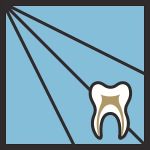 Central Pennsylvania Endodontics, LLC5.0 (241 review)
Central Pennsylvania Endodontics, LLC5.0 (241 review) The Importance of Oral Health Education During Pregnancy for a Healthy Pregnancy
The Importance of Oral Health Education During Pregnancy for a Healthy Pregnancy Best Tips for Brushing Your Teeth Properly for Healthy Gums: Essential Techniques for Oral Health
Best Tips for Brushing Your Teeth Properly for Healthy Gums: Essential Techniques for Oral Health Why Skipping Dental Checkups Can Lead to Bigger Oral Health Problems
Why Skipping Dental Checkups Can Lead to Bigger Oral Health Problems Advantages of Porcelain Dental Restorations
Advantages of Porcelain Dental Restorations How Can Diabetes Cause Tooth and Gum Problems? Preventing and Managing Oral Health Issues
How Can Diabetes Cause Tooth and Gum Problems? Preventing and Managing Oral Health Issues Healthy Habits for Promoting Good Oral Health and Hygiene: Tips for a Healthy Smile
Healthy Habits for Promoting Good Oral Health and Hygiene: Tips for a Healthy Smile